It all began from the concern during the COVID-19 pandemic with all its limitations. Amidst concrete and hustle and bustle city, we chose to plant hope. An idle land with 912m² in Arcamanik, Bandung, became our first movement in 2020. What made it unique was that, being in the center of the city, the idle land we revitalized into a productive food garden was not a single wide area like in rural areas but split into several plots across three different nearby locations. Some of the land we managed are privately owned, and the rest is located under High Voltage Overhead Lines (SUTT) owned by Bandung Government. After four years, the many ups and downs we have faced have become valuable lessons for us. Our efforts to revitalize idle lands into productive gardens continue. Now, in 2025, Seni Tani is revitalizing a 1700m² idle land in Cigadung area, Bandung City.
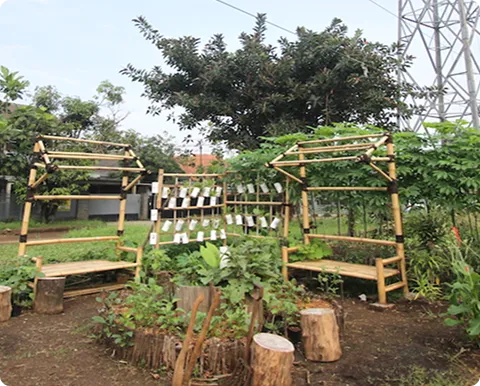
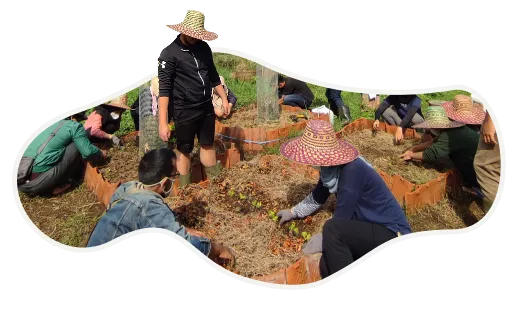
We aim to bring urban people closer with a lush environment and nature. Whether children, teenagers, or adults can learn directly from nature without having to go to the village. We hope that our community gardening can create a collaborative platform and enhance a sense of togetherness among urban people. In addition, by doing urban gardening, we can stay close with our food sources.
We want to create deeper and more sustainable changes, not only in terms of the harvest but also from the way we restore the land, build community, and reconnect urban people with nature.
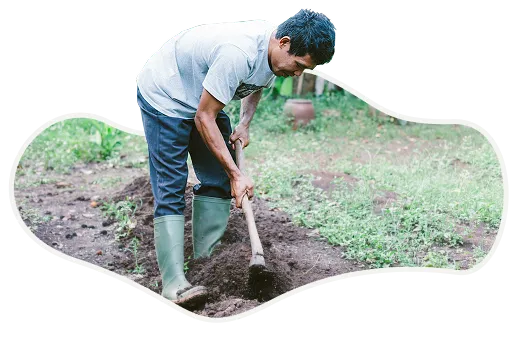
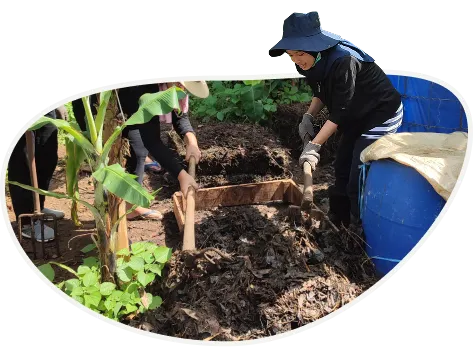
In the city, more than 50% of household waste is organic (food scraps, wilted vegetables, fruit peels, yard waste). Unfortunately, instead of returning to the soil, it ends up in landfills, decomposing without benefit, producing methane gas, and polluting the environment. We believe a city is not just a place of consumption; it can also be a place of production and restoration. Self-composting by utilizing yard waste and food scraps is our effort to restore and bring life back to the city’s dead and barren soil.
Urban people tend to recognize only a few types of vegetables. By planting a wide variety of plants, we aim to open access to diverse, healthy, and nutritious local food. In addition, diverse plants enhance natural resistence to pests and disease, resulting in a healthy and regenerative ecosystem.
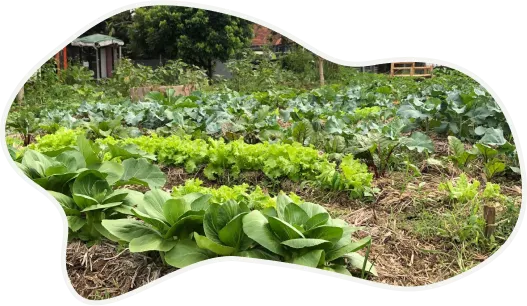
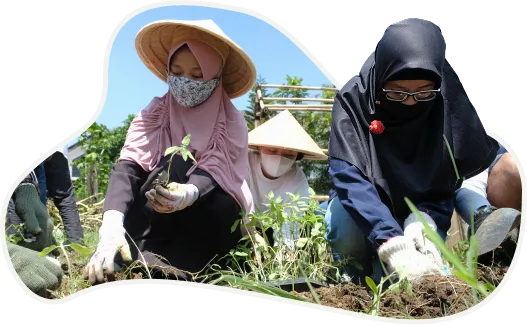
This garden is not just about planting vegetables; it is about connection. A space for dialogue, learning, and healing.
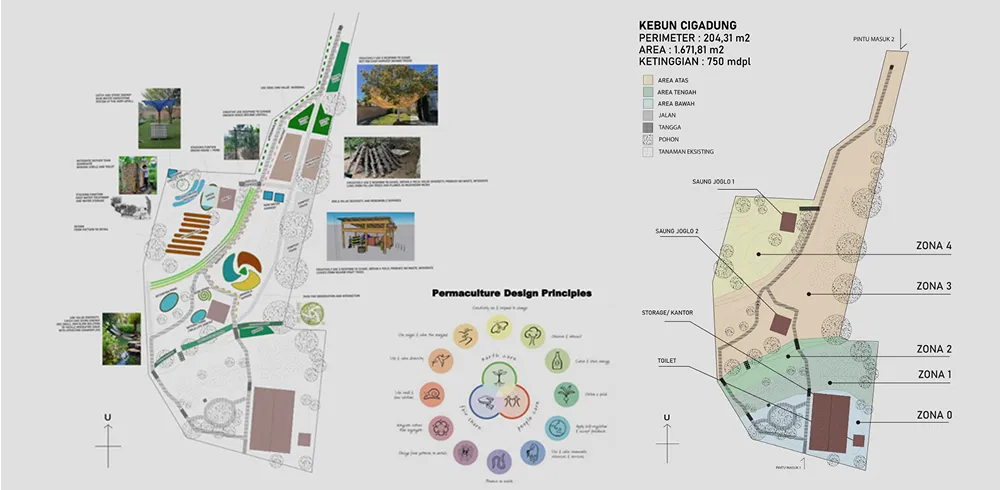
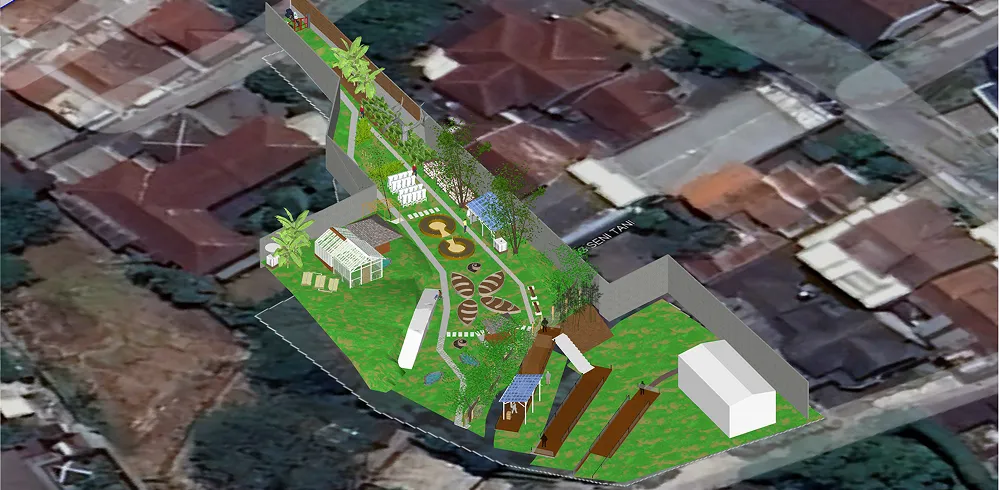
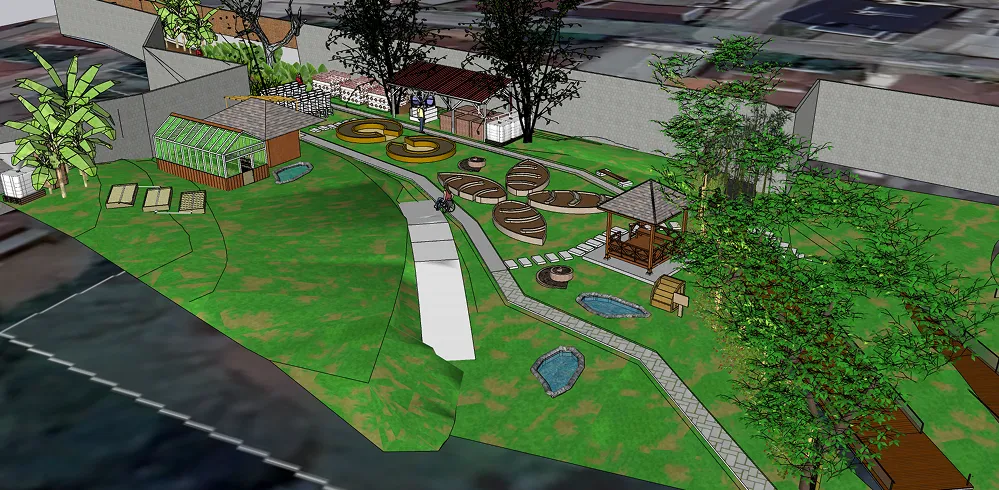
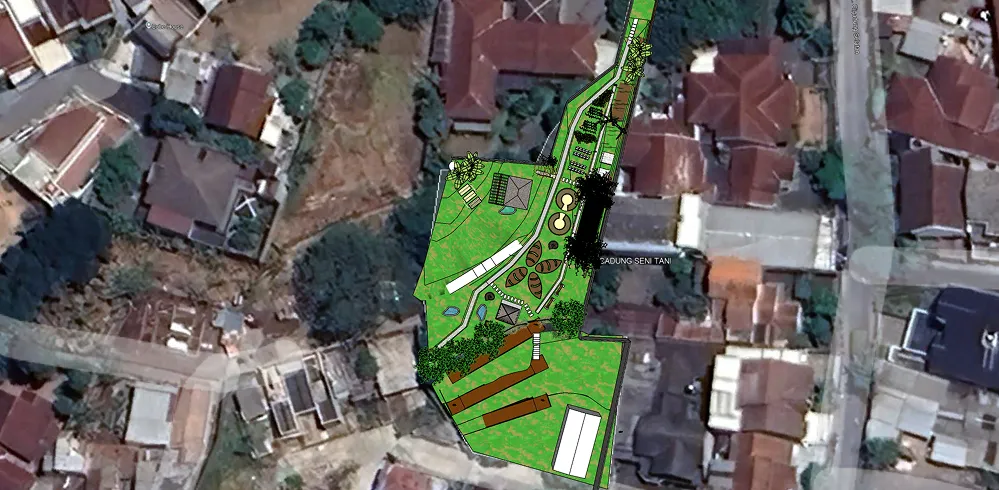
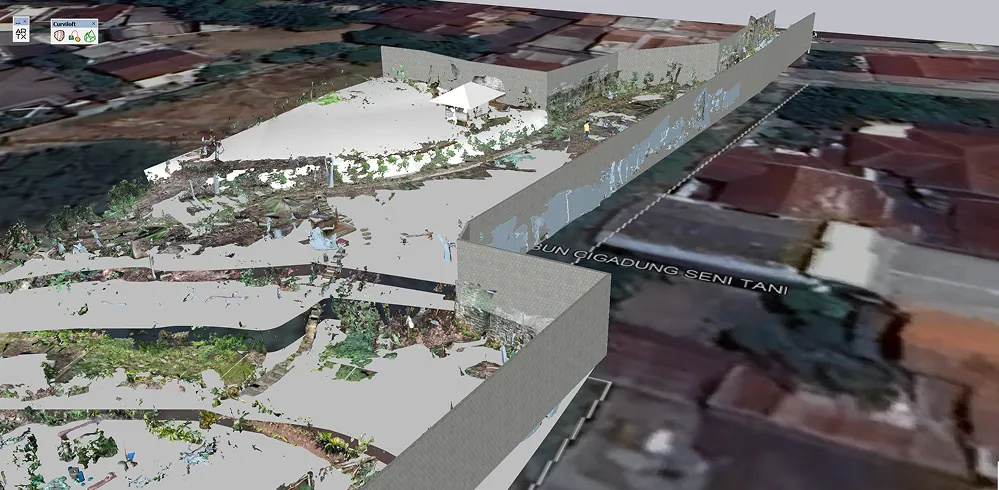
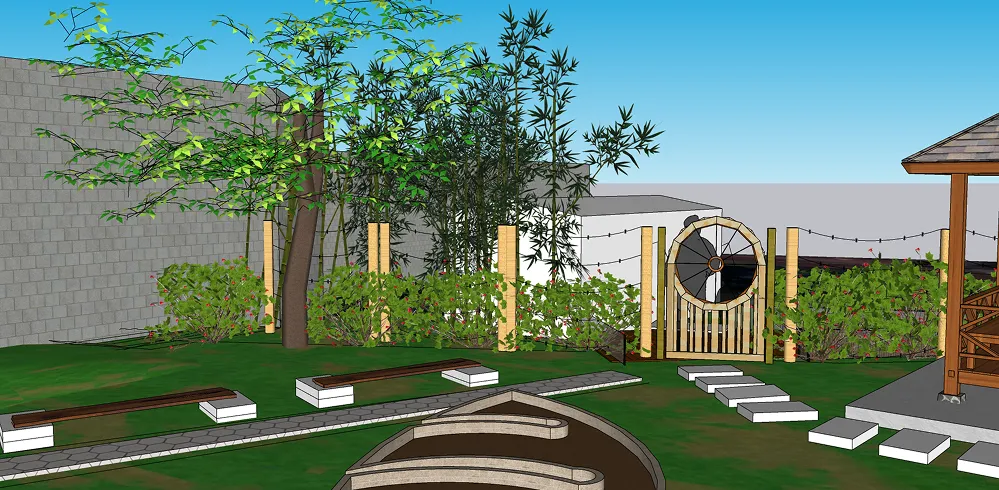
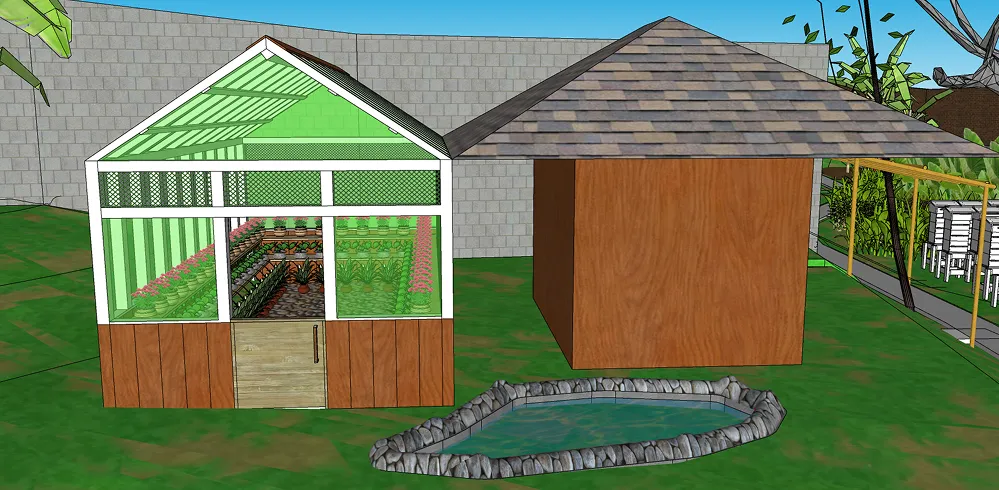
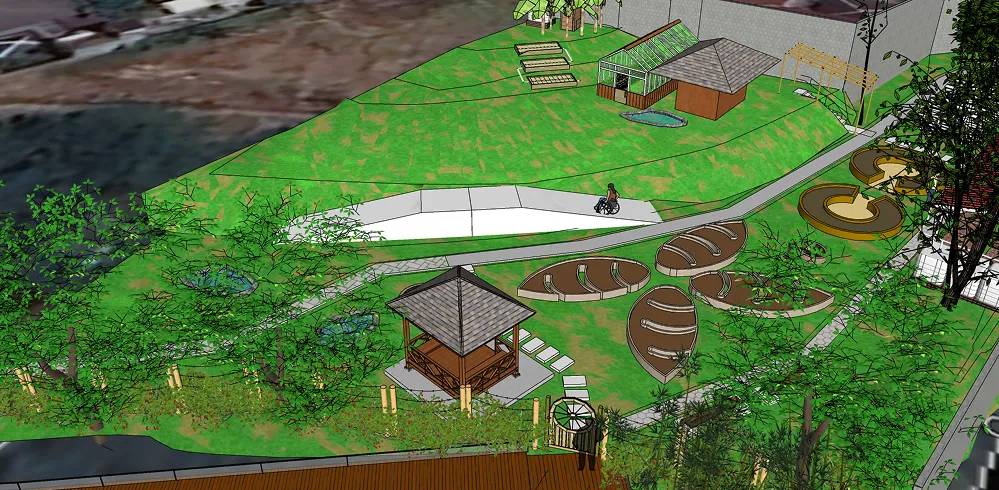
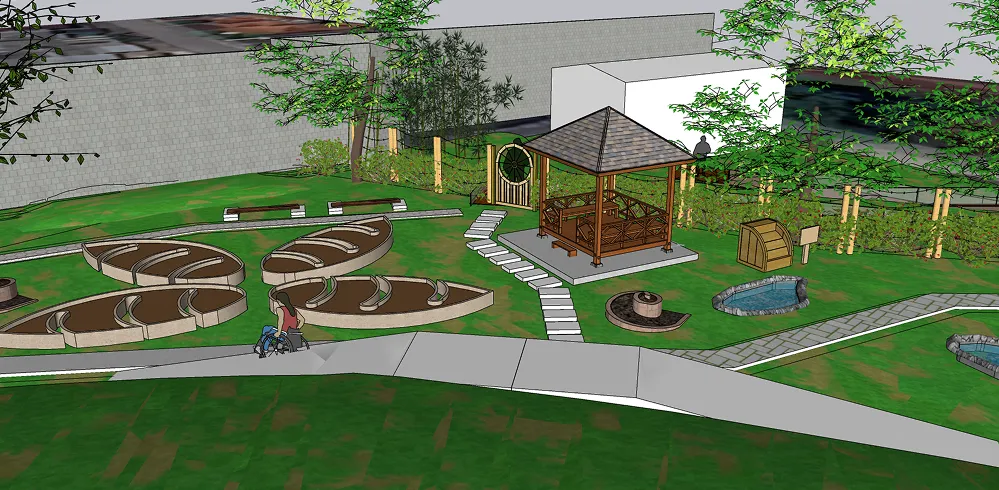
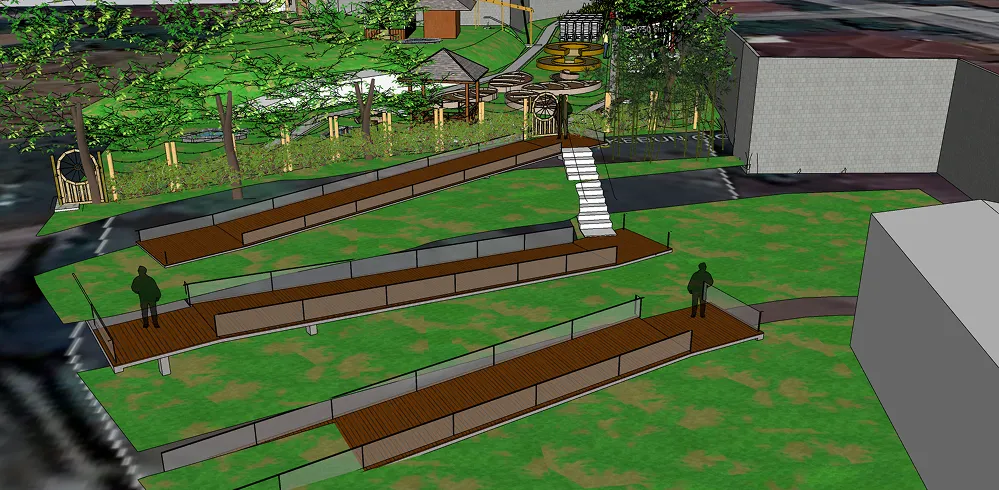
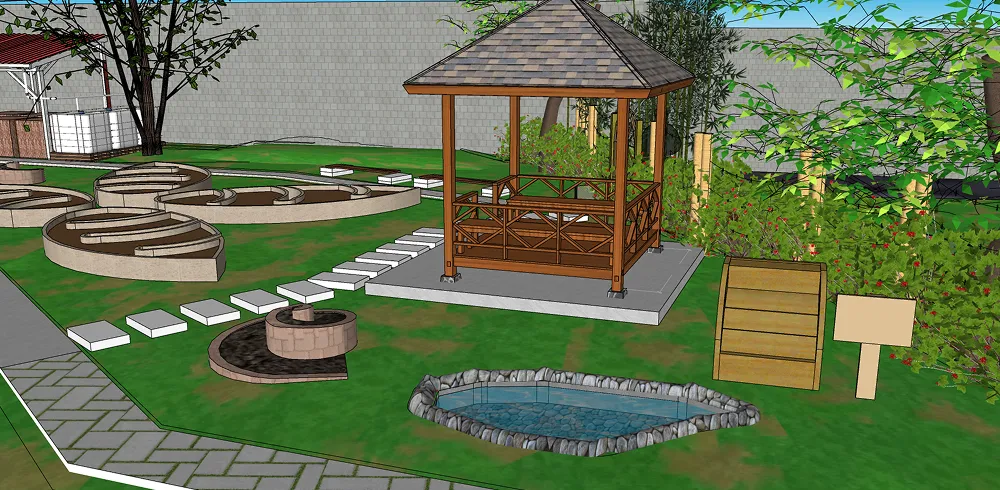
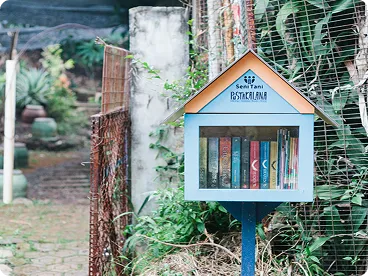
Dokumentasi Biblio Little Library Pustakalana
Foto oleh: Ady Nura (2025)
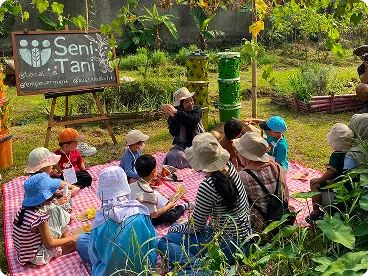
Dokumentasi kegiatan Ngebun Seru Yuk!
Foto oleh: Ady Nura (2025)
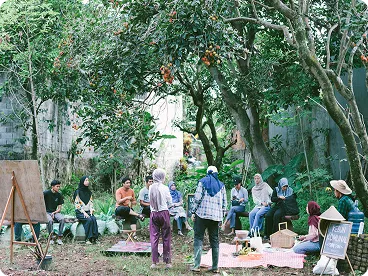
Dokumentasi kegiatan Kebun Komunal
Foto oleh: Ady Nura (2025)
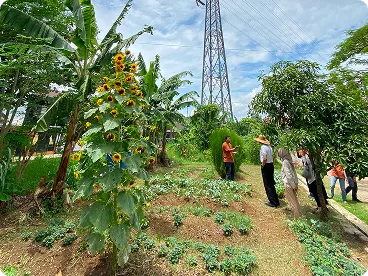
Dokumentasi kunjungan dari FAO Indonesia
Foto oleh: Mentari Alwasilah (2024)

Dokumentasi kegiatan Kebun Gembira
Foto oleh: Mentari Alwasilah (2023)
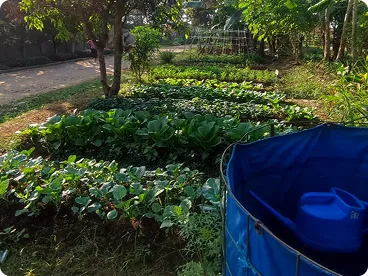
Dokumentasi Kebun Rugby
Foto oleh: Vania Febriyantie (2023)
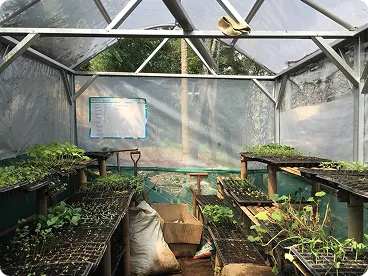
Dokumentasi greenhouse
Foto oleh: Anggieta Kustina (2022)
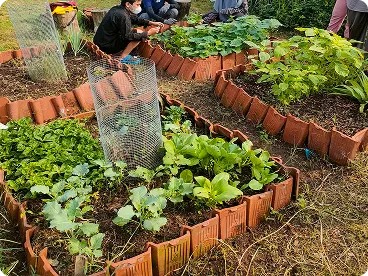
Dokumentasi kegiatan Pelatihan Tani Bestari
Foto oleh: Vania Febriyantie (2022)
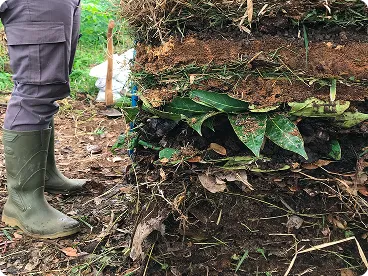
Dokumentasi lasagna compost
Foto oleh: Vania Febriyantie (2021)
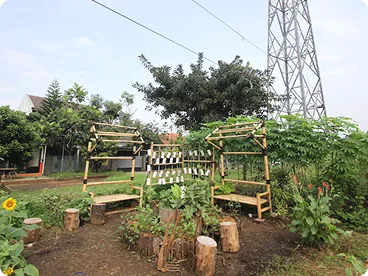
Dokumentasi kebun komunal
Foto oleh: Mentari Alwasilah (2021)